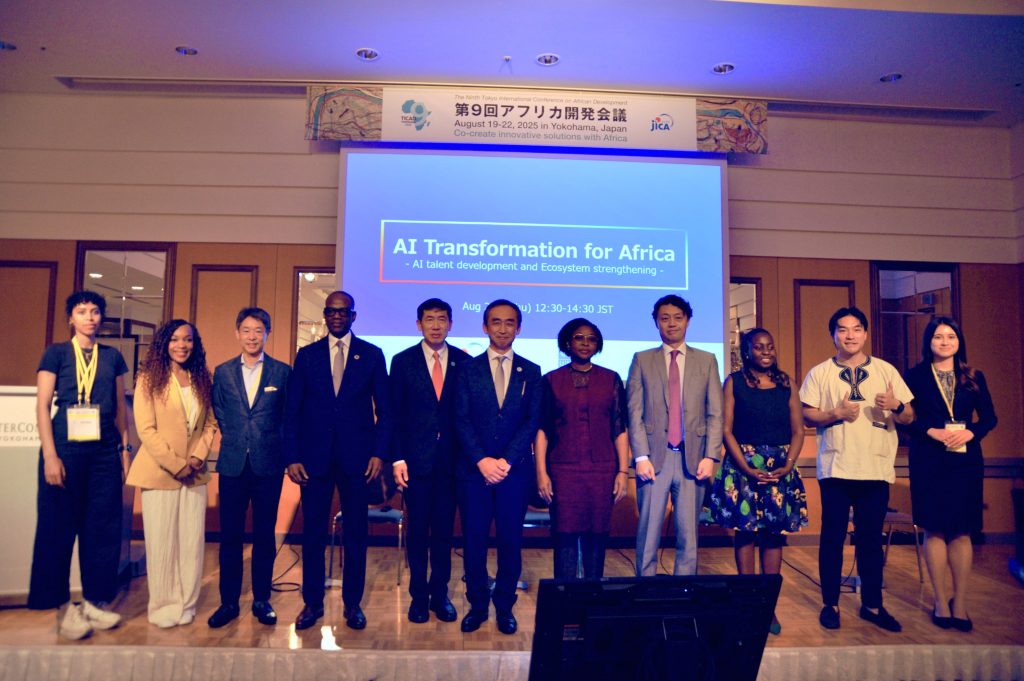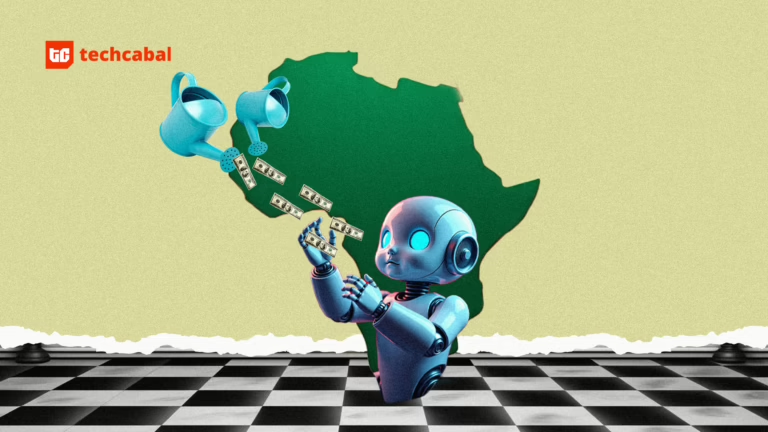Every Thursday, Delve Into AI offers in-depth perspectives on Africa’s evolving AI landscape. This series explores the interplay between AI and the continent’s culture, policies, and business environments. Stay informed about the innovators, initiatives, and critical questions shaping Africa’s AI future. Share your feedback on this column via this form.
Forecasts indicate Africa’s AI sector will reach a valuation of $16 billion within the next five years. However, the continent currently accounts for only 1% of the world’s AI expertise, highlighting a growing talent deficit as sectors ranging from agriculture to finance accelerate AI adoption.
At the Tokyo International Conference on African Development (TICAD) held in August, Japanese Prime Minister Ishiba Shigeru announced a significant commitment: Japan aims to cultivate 30,000 AI professionals across Africa over the coming three years. This ambitious target is being spearheaded by the Japan International Cooperation Agency (JICA), the government’s agency for international development.
Focusing on Talent Development
Africa’s AI advancement faces two intertwined hurdles: insufficient infrastructure and a scarcity of skilled individuals capable of transforming digital aspirations into tangible outcomes. While infrastructure-such as data centers, computing power, and stable internet connectivity-is undeniably crucial, Africa currently possesses less than 1% of the world’s data center capacity despite its expanding population. Yet, without a robust talent pool, even the best infrastructure cannot be fully leveraged.
Dr. Bosun Tijani, Nigeria’s Minister of Communications, Digital Economy, and Innovation, recently remarked, “Though we may lack extensive computing infrastructure, our talent pool is strong.” This sentiment is echoed by JICA officials.
Ryosuke Miyashita, JICA’s Deputy Director for Digital Transformation, emphasizes, “Talent is fundamental to generating societal and economic value. Without skilled professionals, infrastructure and strategic initiatives cannot be effectively developed.”
This philosophy underpins Japan’s pledge: while computational resources are vital, the presence of engineers, researchers, and analysts who can utilize these tools is indispensable. The goal is to nurture the human capital that will drive Africa’s expanding AI ecosystem.
Nonetheless, access to infrastructure remains a significant challenge. Currently, only 5% of Africa’s AI experts have the computational resources necessary for advanced research. JICA intends to broaden its support beyond talent cultivation to address these infrastructural gaps.
Atsushi Yamanaka, Senior Advisor for Digital Transformation at JICA, shared with TechCabal, “Subject to available resources, we aim to collaborate with partners to enhance other critical components of AI development.”
Strategic Objectives and Collaborative Efforts
JICA’s August report on Africa’s AI talent underscores that its role extends beyond mere support-it is laying the groundwork for scalable AI growth across the continent.
The agency’s strategy encompasses two main objectives: first, to deepen the AI talent pool by partnering with African universities and regional research networks; second, to foster bilateral cooperation with Japanese enterprises through internships, exchange programs, and joint academic initiatives. Training will not be limited to computer science students but will also include policymakers and faculty from non-STEM disciplines, promoting AI literacy across diverse sectors. Collaborative projects will address urgent issues in healthcare, manufacturing, agriculture, and education, while hackathons will offer hands-on opportunities to apply new skills.
For Japan, this talent development initiative also addresses its looming shortage of approximately 450,000 IT professionals by 2030. Japan’s future competitiveness hinges on bridging this digital skills gap. By encouraging partnerships between Japanese universities, corporations, and African talent, the program aims to foster meaningful “co-creation and co-innovation.”
“Innovations emerging from Africa and other Global South regions have the potential to influence the global AI landscape profoundly,” Miyashita told TechCabal.

Research Collaborations and Mitigating Brain Drain
Despite these efforts, JICA cautions that Africa’s AI research must transcend applied local solutions. Currently, Sub-Saharan Africa accounts for a mere 0.02% of global AI patents granted. While innovations in sectors like health and agriculture are vital, achieving long-term leadership in AI requires African institutions to contribute to foundational AI research breakthroughs worldwide.
JICA is forging partnerships with prominent African academic and research institutions, including the African Institute of Mathematical Sciences (AIMS), University of Nairobi, Stellenbosch University, and Mohammed VI Polytechnic University. The vision is to establish ‘centers of excellence’ that develop AI curricula, conduct impactful research, and train future AI experts. Additionally, the University of Tokyo’s Matsuo-Iwasawa Lab, a leading AI research center in Japan, is collaborating to create online educational content accessible to students across Africa.
“Our target for the next three years is ambitious,” Yamanaka explains. “We plan to engage with numerous universities at varying levels of collaboration.”
However, challenges persist. To prevent a brain drain, it is crucial to create local employment opportunities for trained professionals. Without robust industries and research facilities to absorb this talent, Africa risks becoming a training ground for foreign companies.
A Competitive and Collaborative AI Ecosystem
Japan is among several international stakeholders investing in Africa’s AI development. Countries such as Germany, Canada, the UK, and Sweden have contributed through their development agencies. Foundations like the Bill & Melinda Gates Foundation have pledged substantial funds to support AI-driven innovations in healthcare and agriculture. Tech giants like Google have also committed $9 million to bolster African university research.
Rather than working in isolation, JICA aims to coordinate with these entities to optimize resources and avoid duplication. Miyashita reflects, “Previously, efforts were fragmented, and we lacked a comprehensive understanding of ongoing initiatives. This was unfortunate given limited resources.”
He continues, “Everyone wants to contribute, but without clear insight into existing activities, there’s a risk of redundancy. This realization has underscored the importance of collaboration.”
This call for coordination extends beyond international partners. African governments are increasingly advocating for unified approaches to address systemic challenges that could hinder AI progress.
Harnessing Africa’s Innovation Potential
The overarching aim is to strengthen exchanges and innovation between Africa and Japan. JICA also seeks to nurture a vibrant startup ecosystem by providing venture capital funding and other support mechanisms, according to Yamanaka.
While Africa has traditionally attracted investment from the US and Europe, Japan is carving a distinct path by fostering business partnerships and aligning African innovation needs with Japanese technological expertise.
In this context, Africa’s urgent social and economic challenges are viewed not as obstacles but as catalysts for innovation that can generate mutual benefits.
“Innovation is driven by necessity,” Miyashita concludes. “Africa’s needs are abundant, and that’s a powerful driver for progress.”
We welcome your thoughts on this column and any AI-related topics in Africa you’d like us to explore. Please share your ideas through the form here.
Save the date! Moonshot by TechCabal returns to Lagos on October 15-16. Join Africa’s leading founders, creatives, and tech visionaries for two days of inspiring keynotes, networking, and forward-thinking discussions. Early bird tickets are now 20% off-don’t miss out! Visit moonshot.techcabal.com



















0 Comments